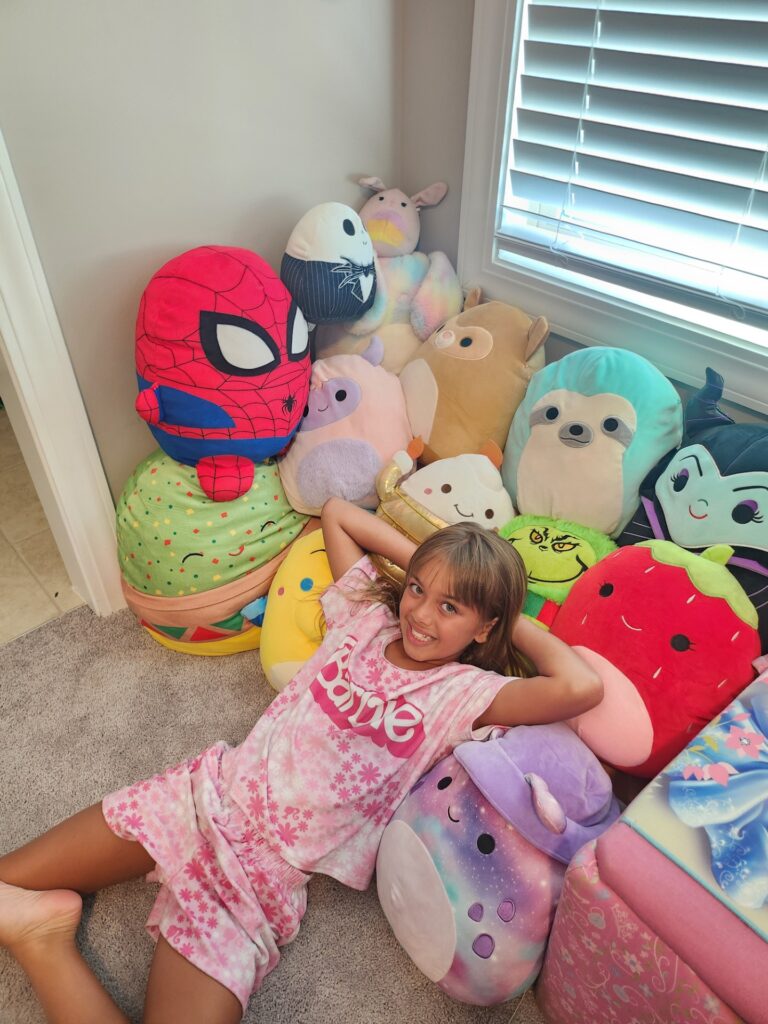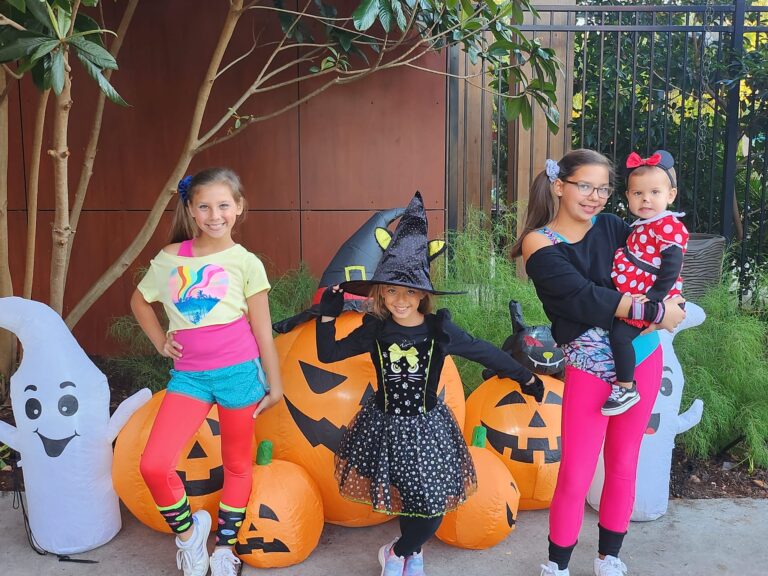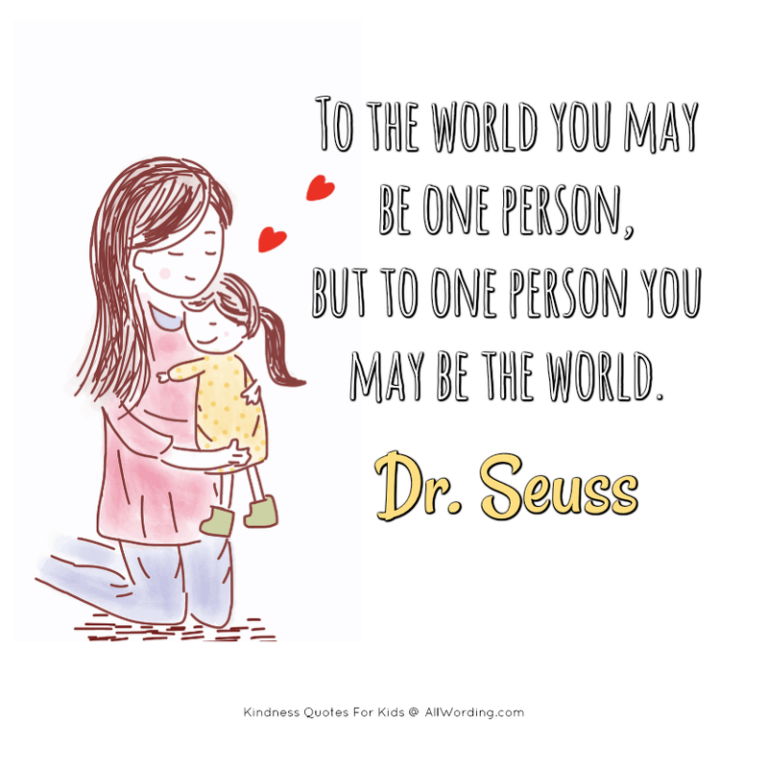Increase Anxiety in Children with ADHD
Increase Anxiety in Children with ADHD
Anxiety in ADHD children
It is common for children diagnosed with ADHD to also struggle with anxiety. It can be a few symptoms or a full blown disorder. According to the 2016 National Survey of Children’s Health (NSCH), the most recent study for which this data was available, 3 in 10 children with ADHD also have an anxiety disorder.
How to tell apart ADHD and anxiety
You can tell the two disorders apart by looking at some key factors. Paying close attention to the key factors can offer insights into the type of condition your child might have. Some symptoms overlap and therefore you should always seek a diagnosis from a health care provider.
Typically fears and worrying about bad things happening will be the child’s anxiety vs normal ADHD behaviors. In ADHD, usually behaviors are not tied to worries. Kids with anxiety may also exhibit stomach issues such as nausea and vomiting, anger and irritability.
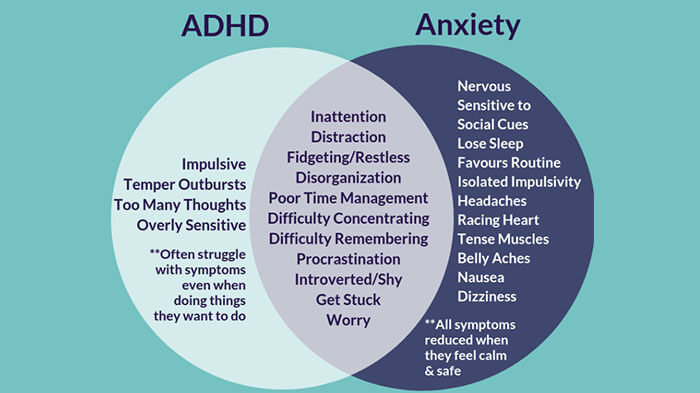
Anxiety Symptoms
- Sleep disturbance (difficulty falling or staying asleep)
- Increased irritability
- Being argumentative
- Withdrawing from peers
- School refusal
- Being disruptive or clowning around in school
- Hair twirling or skin picking
- stomach issues; nausea and/or vomiting
- headaches
My story
My son is 10 years old and suffers from ADHD and anxiety. We have had a rough week with him. It started on Thursday. He overheard a conversation between his teacher and another student and it “set him off”. He started crying and complaining about his stomach hurting. His teacher and school counselor spoke with him. He stated that he misses “nana” which is my mother who passed away from cancer in 2019.
We picked him up from school that day he was very upset. Ever since he was been crying and very anxious. All day Sunday he cried off and on. Saying that his stomach hurt but wouldn’t say what was wrong. He did go to his soccer game Sunday evening. He went to school Monday, Tuesday and Wednesday with no issues.
On Tuesday night during his weekly counseling session we had a breakthrough. Michael finally opened up and stated he was scared that his dad (who is older) and his “papa” are going to die “because they are old and old people die”. He stated he wasn’t worried about mommy because she is still young. This was a huge breakthrough for him. He has never opened up this way before.
He also stated that he has seen men in our backyard wearing masking and a black van. This was a bit concerning. Is this a vision, an hallucination, a nightmare or his way of coping with the anxiety that he is feeling?
My son sees a counselor once a week for the past few months and it has helped tremendously. My concern for him is this just anxiety or are we looking at depression also. He follows up with his doctor next week. I will update after his appointment.
How to help cope with anxiety
Both ADHD and anxiety are hard on everyone. Here are some tips for helping to cope:
- Keep a trigger tracker– Understanding what particular stressors cause the most anxiety for your child helps your child learn to predict anxiety-inducing situations and manage symptoms as they arise.
- Thought stopping– Teach your child to practice thought-stopping at home. In a calm moment, have your child practice saying, “No. Stop telling me that, worry brain. I can do this.”Anxious kids struggle with flooding. Anxious thoughts tend to overwhelm kids all at once, and it can be difficult to recover once the brain shifts into a pattern of anxious thinking.
- Teach Deep Breathing: Deep breathing is a great strategy for young children. Deep breathing slows down the heart rate and relieves muscle tension. Encourage your child to visualize blowing up a balloon while taking a very deep breath. Your child should inhale for a count of four, hold for four, and exhale for four.
- Licensed mental health professional: If your child’s anxiety impacts his daily living (school, home, outside activities) and interferes with his ability to access the curriculum at school and enjoy his life, it’s time to seek a licensed mental health professional.
Treatment for anxiety
- CBT therapy: is a type of talk therapy that has been scientifically shown to be effective in treating anxiety disorders. CBT teaches skills and techniques to your child that she can use to reduce her anxiety.
- Medication: Prescription medications can be useful in the treatment of anxiety disorders. They are also often used in conjunction with therapy. Medication can be a short-term or long-term treatment option, depending on how severe your child’s symptoms are and how he or she responds to treatment. SSRI’s are currently the medication of choice for anxiety in children.
- This decision needs to be made by the parent/guardian and a medical professional.
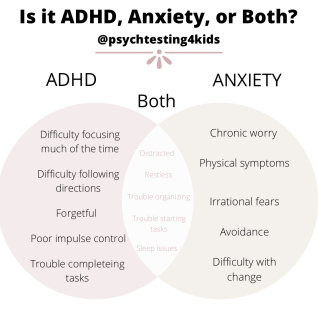
Increase Anxiety in Children with ADHD
Some fidgets that help with ADHD and anxiety
Do you have a child with ADHD that suffers from anxiety?




